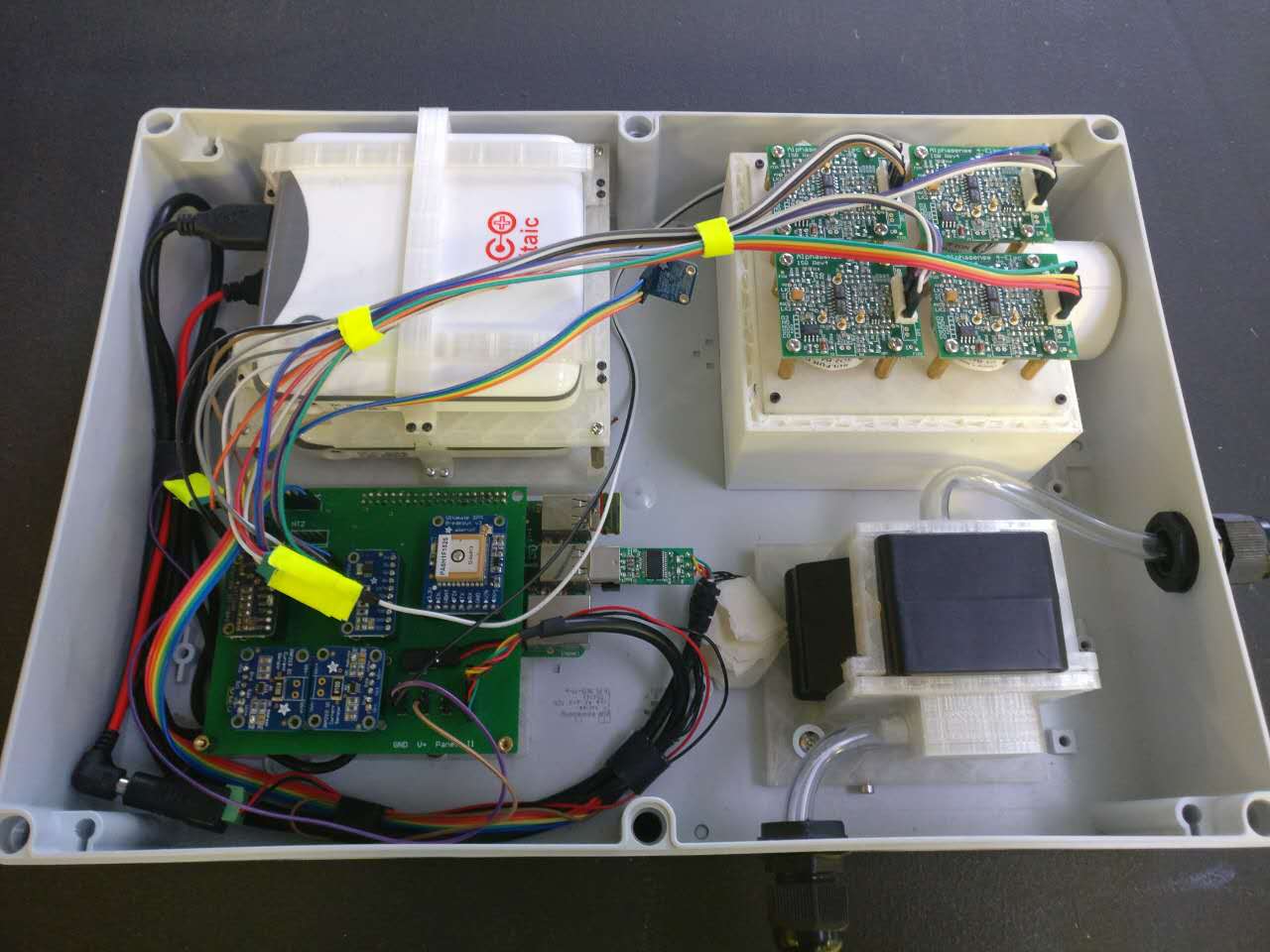Dual Air Quality System

About
The Dual Air Quality Systems (DAQS) is an ambitious project where we aim to create a network of affordable sensors to provide a dense and comprehensive coverage of Abu Dhabi’s air quality. We envisioned the sensors to be placed on top of buses and bus stations, forming a sensor network that will cross calibrate between themselves to improve accuracy. We believe that a dense and comprehensive coverage of air quality, provided by our sensor network, would benefit Abu Dhabi extensively for better policy enactment, for environmental awareness, and for the health of the citizens.
The device
DAQS uses the affordable Alphasense environmental sensors to measure the air quality. The device currently uses the electrochemical sensors to measure carbon monoxide, sulfur dioxide, nitrogen dioxide, and ozone level in the air, and it also uses the optical particle counters to measure the level of particulate matters in the air. The data is acquired through custom PCB and processed in a Raspberry Pi, and through 4G connectivity, the device automatically uploads the collected data to firebase, a real-time data base.
Work Done
I took over the project one year after its inception with the aim to make this system functional in the real world. To do so, I must make the device field ready and improve the quality of the collected data. These leads me to redesign the physical prototype and to conduct extensive testing of the sensors.
To make the device ready for real world testing, I increased the robustness of the electronics by eliminating majority of wire connection with a custom Printed Circuit Board (PCB) and weather proofed the device by securing it in a NEMA 4X Rated (corrosion proof, splashproof, and dustproof) polycarbonate casing with custom 3D printed parts.
To improve the quality of the collected data, I tested the DAQS sensors extensively in real world condition. The testing lead me to conclude that the original sensors, Alphasense Small Class sensors, are too noisy to for reliable data. As such, we opted for the more accurate Compact Class sensors. After testing and calibration, we collected promising air quality data and presented the improved system to the Prime Minister’s office in Dubai. During the meeting, we met with and was advised by experts in air quality monitoring. The data we have gathered, per the experts, have demonstrated indicatively the of air quality of Abu Dhabi.
Future WOrk
The system is currently being actively developed to improve the accuracy and the response time of the sensor data. To improve the accuracy of the data, we are currently implementing a neural network based calibration system to cross calibrate between the sensors. We believe that through the cross calibration of the collected data, we could achieve obtained more representative data for Abu Dhabi’s air quality. Furthermore, to improve the response time of the data, we are decreasing the air chamber size of the system, as advised by the air quality experts.









